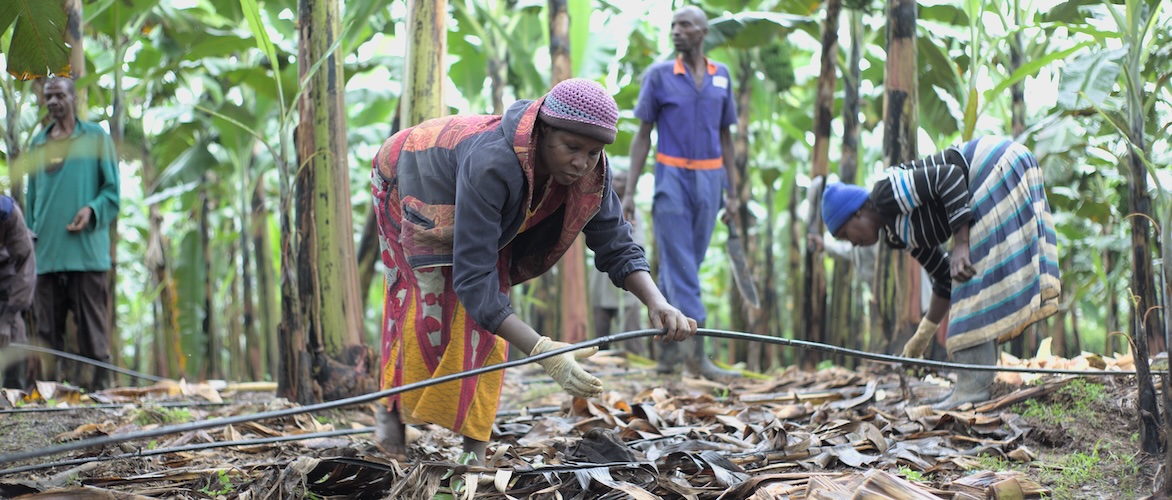
Photo credit: BIRDC, Uganda
SOLUTIONS CATALOGUE
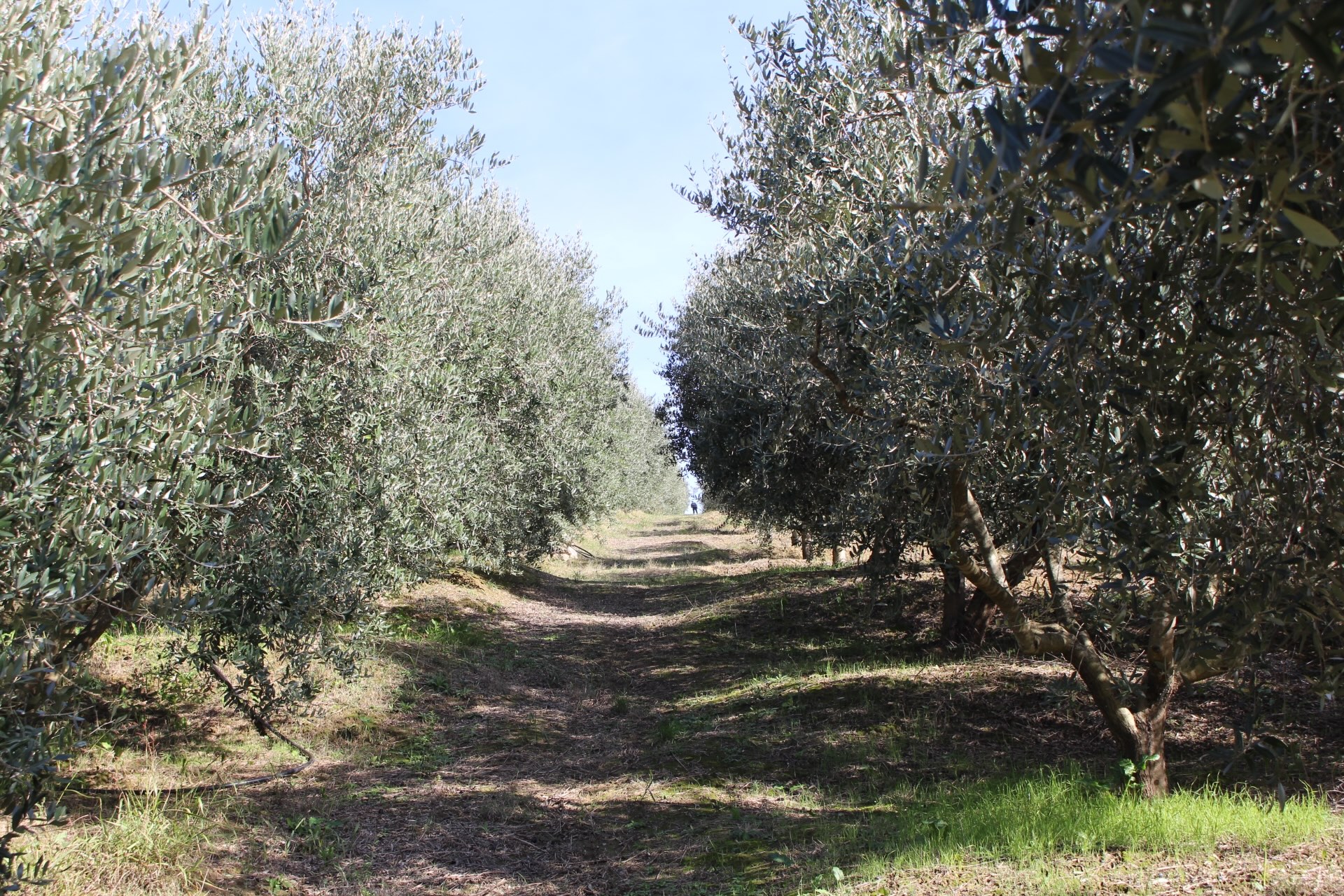
This initiative focuses on soil-based carbon sequestration using shred technologies for olive pruning residues to prevent open-air burning. It also introduces agrivoltaic solutions like solar-powered water pumps to address irrigation and energy deficits. The key outcomes include relieving current pressures on farmers and fostering sustainability and resilience in agricultural practices.
Visit their website: https://www.recshqiperi.org/
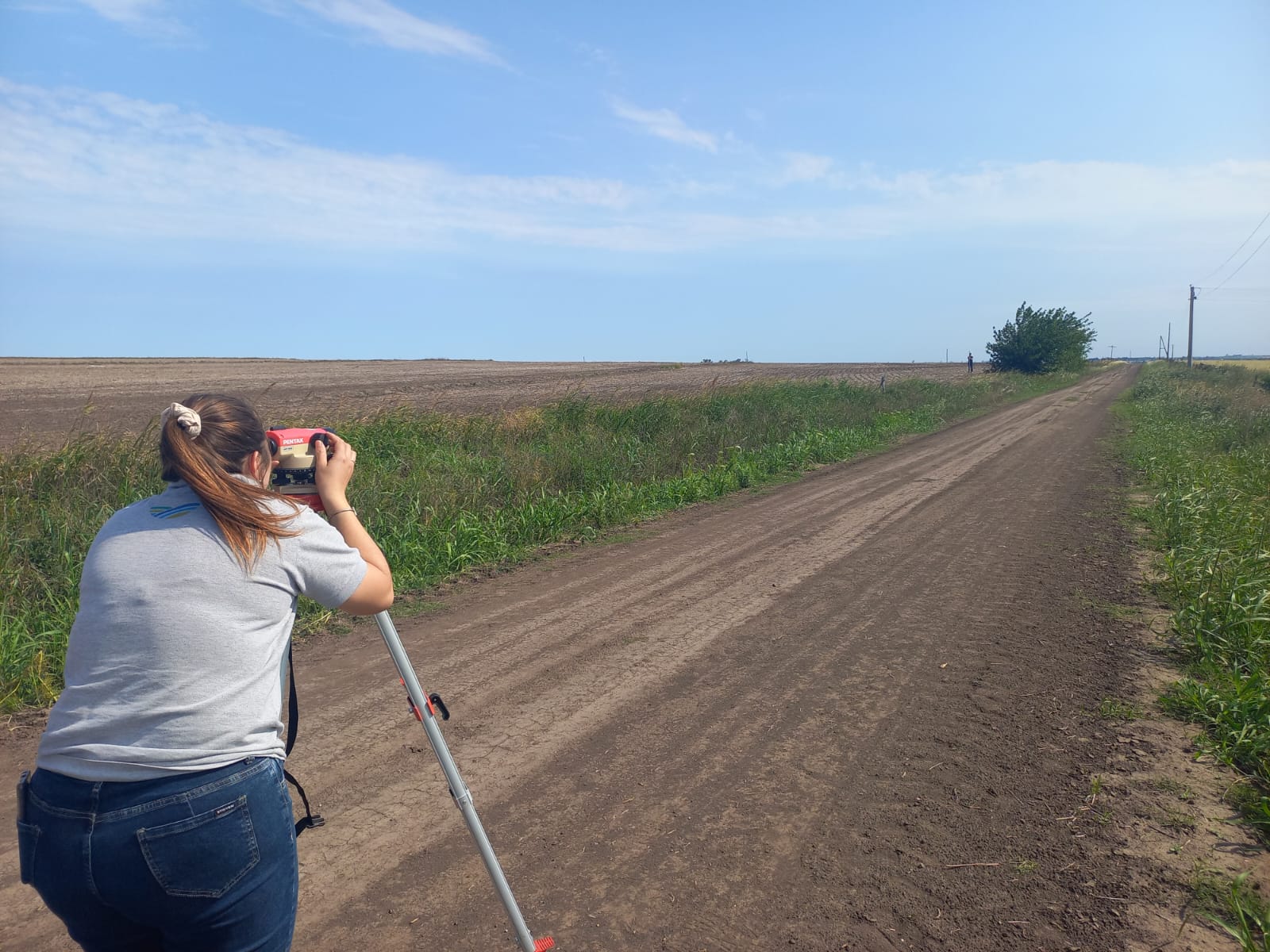
This initiative focuses on land systematization and soil preservation techniques within a water basin, including constructing smooth terraces and collector channels. Key outcomes include environmental benefits, such as reduced soil erosion and improved water quality, as well as public-private advantages, like decreased road maintenance costs and protection of public infrastructure.
Visit their website: https://www.instagram.com/proiectum.fundacion/
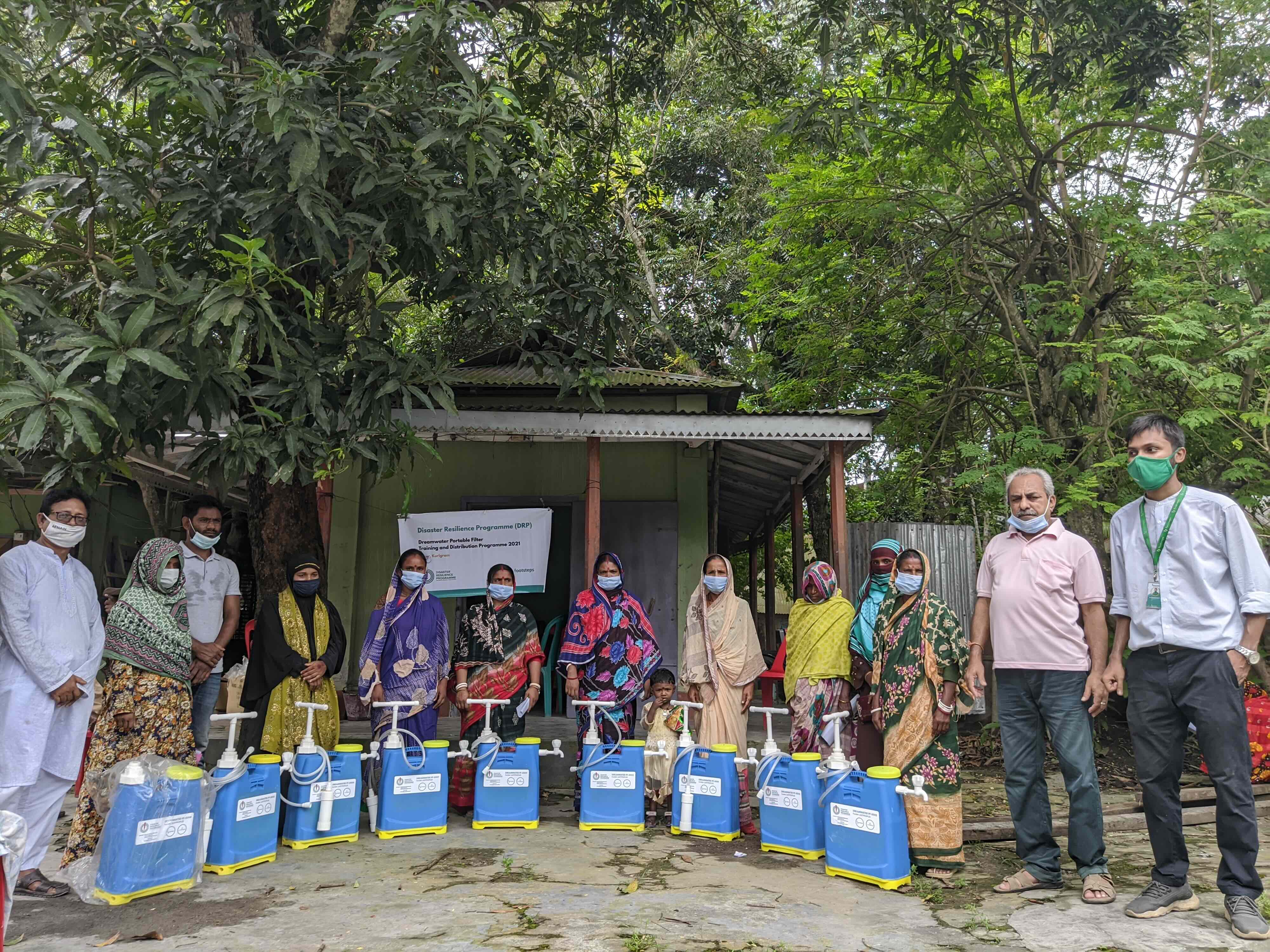
The Dreamwater filter is a portable device which can be carried as a backpack with a potential to convert 15,000 liters of water at a go with its 5 stage UV and ultrafiltration process, removing 99.99 percent of contaminants from water. The filter is operated using a pumping mechanism similar to tubewells. The business model is innovative as it taps into the potential of rural women as entrepreneurs.
Visit their website: https://www.footstepsbd.org/
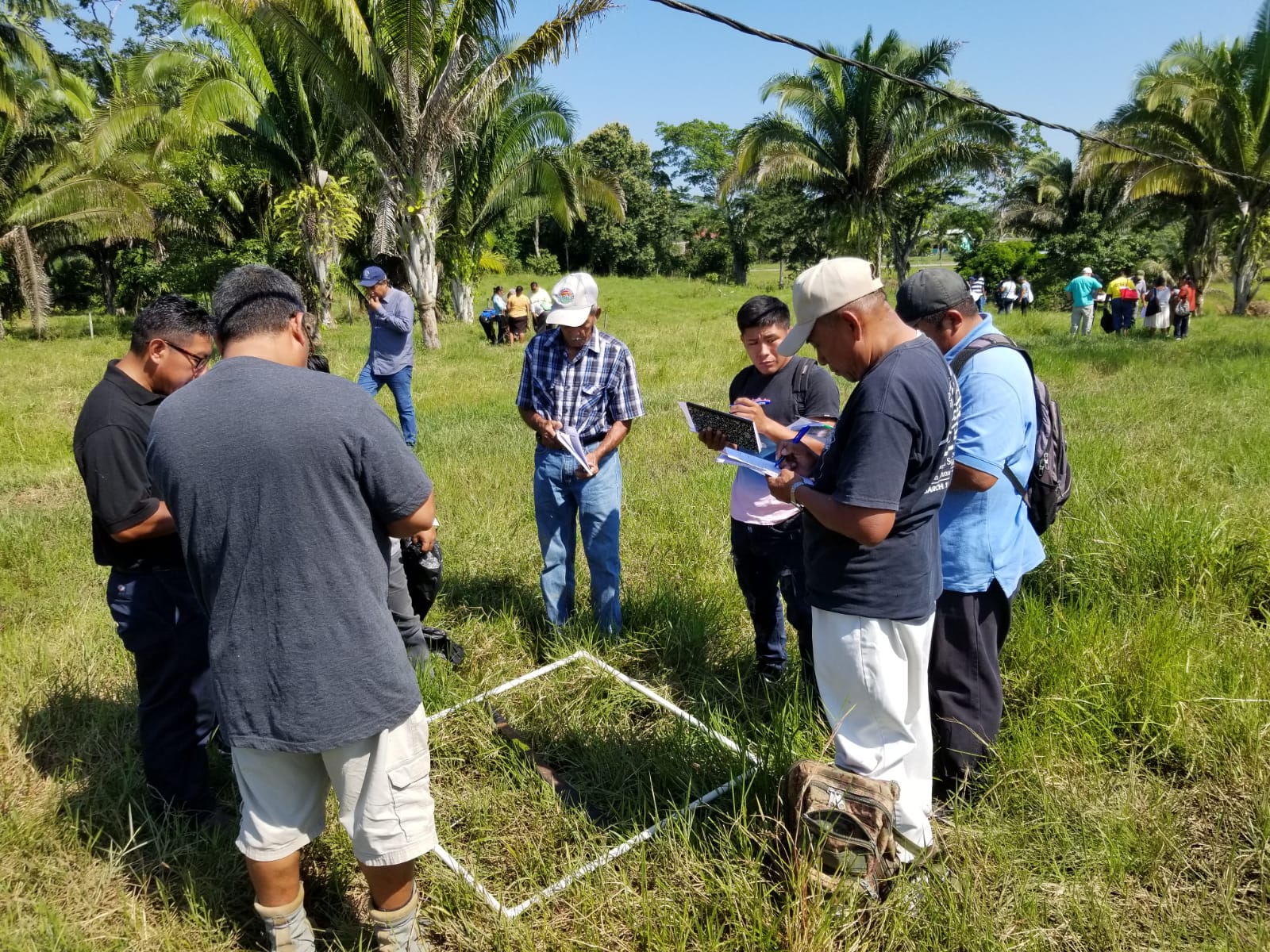
This initiative aims to enhance cattle producers' capacity to adopt climate-resilient practices, improve farm productivity, and elevate their quality of life. By iincorporating a range of best-in-class management practices and technical capabilities, the solution seeks to build resilience for cattle farmers against climate change, ensuring sustainable agricultural practices and improved livelihoods in the face of environmental challenges.
Visit their website: https://belizelivestock.org/
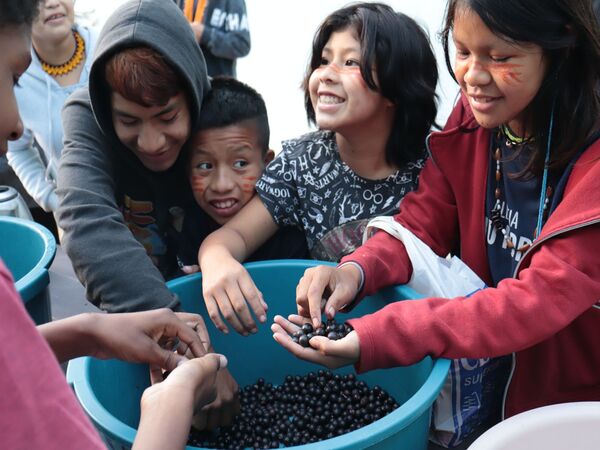
In Southern Brazil, Centro Ecologico supports regenerative agriculture by assisting farmers to cultivate açaí through agroforestry practices. This approach combines açaí production with forest management, benefiting Indigenous and traditional communities by enhancing food security and nutrition, with a focus on 150 households cultivating and harvesting berries.
Visit their website: https://m.centroecologico.org.br/
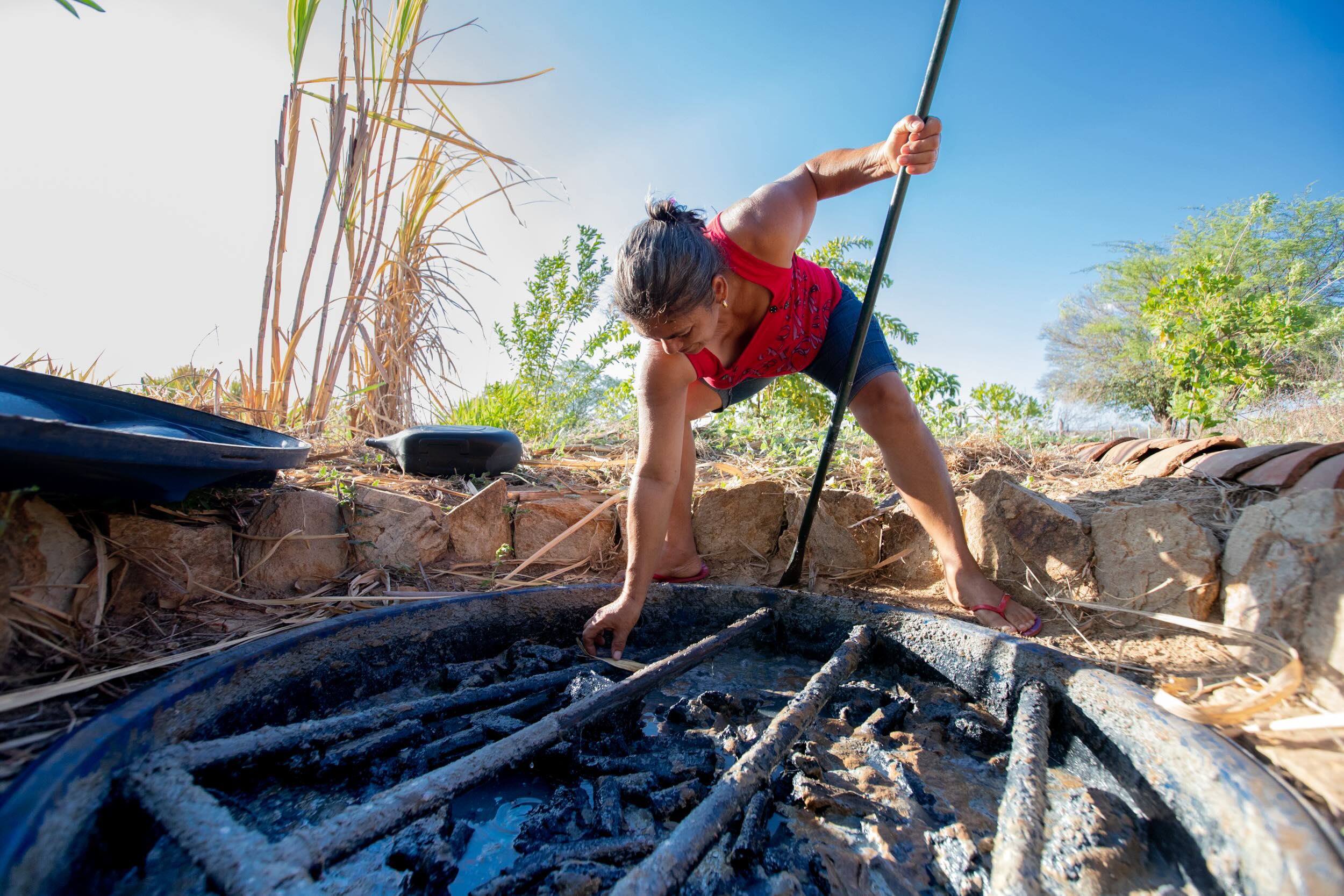
This solution combines capacity building with an integrated greywater reuse system and agroforestry technology to combat drought and food insecurity. Key outcomes include increased water availability for domestic use during the dry season and establishing irrigated agroforestry plots to enhance food security for peasant families.
Visit their website: https://centrosabia.org.br/
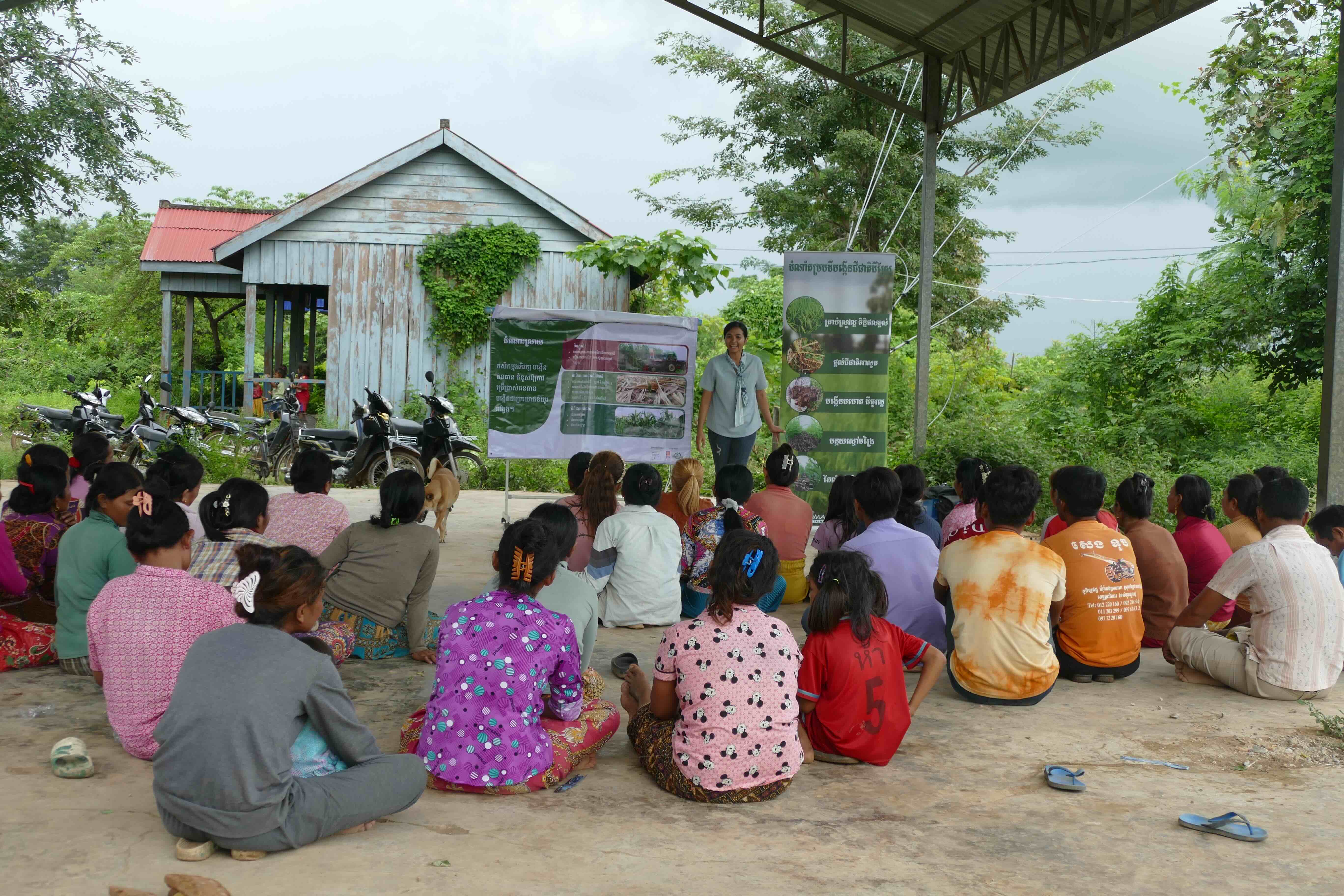
This regenerative agriculture initiative aims to scale the use of cover crops for vital staple crops, increasing farmer profits, enhancing cropping system resilience, reducing food production emissions, and building supply chains for agroecological products. Key outcomes include training 1,000 farmers and improving access to cheaper, high-quality farming inputs.
Visit their website: https://en.heks.ch/
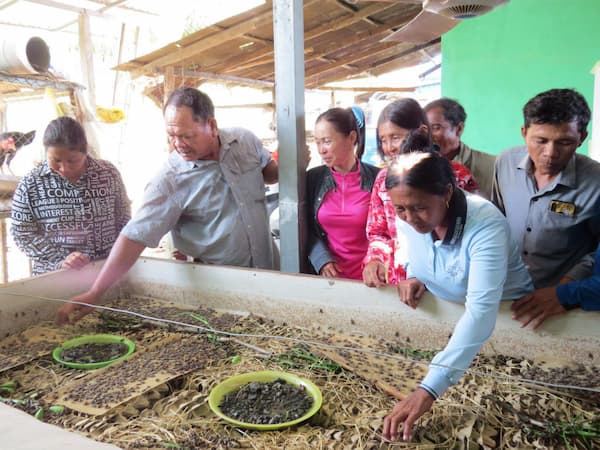
The Livestock Development for Community Livelihood Organization's solution focuses on cricket farming as a strategy to reduce livelihood vulnerabilities from climate change impacts. This solution includes learning sessions on climate-adaptive agriculture, particularly focusing on cricket and chaya farming. The initiative has trained at least 80 new farmers, established 20 new farms, increased household income six-fold with the participating households, and boosted their production yields by 50 percent.
Visit their website: https://celagrid.org
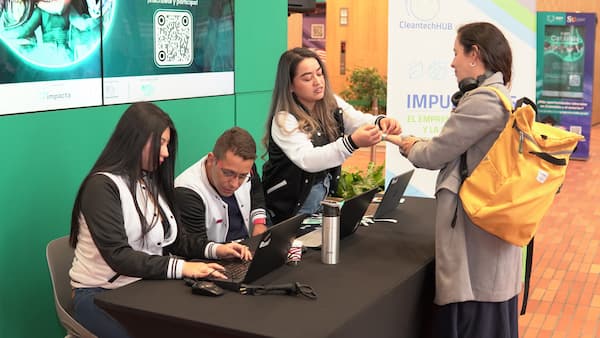
Cleantech Hub solution supports green entrepreneurs and scale-ups, refining business concepts and preparing them for market and investment readiness. The organization collaborates with international partners to expand this model across Latin America and the Caribbean.
Visit their website: https://cleantechhub.net/
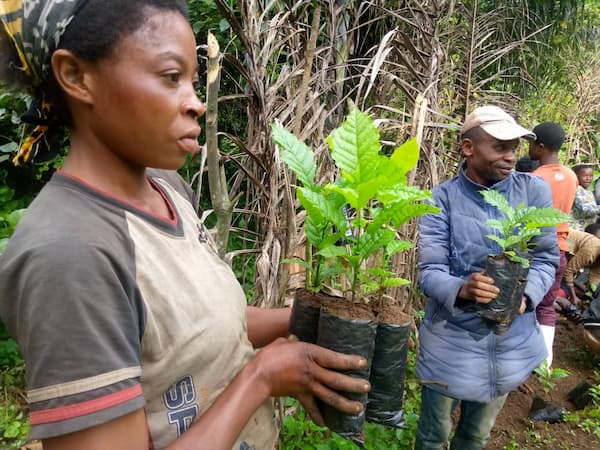
In the Democratic Republic of Congo, PIFEVA is working to enhance the resilience of Indigenous young people and women by restoring biodiversity through planting edible caterpillar trees in deforested community forests. The innovative aspect of this solution is the introduction of edible caterpillar farming and the establishment of an Indigenous cooperative for their sale, providing a sustainable source of income and food security for the community.
Visit their website: https://www.pifeva.org/
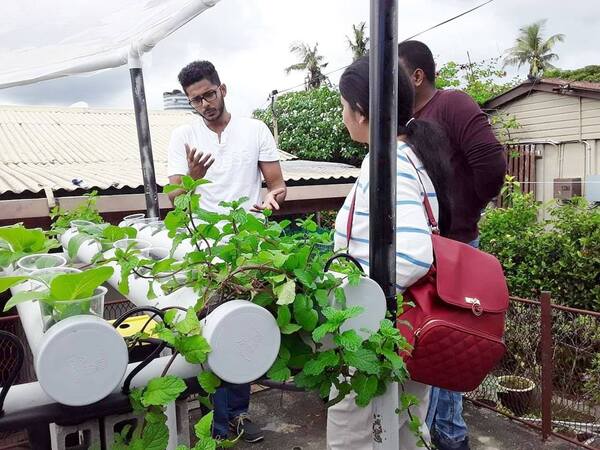
The Smart Farms Fiji Foundation solution promotes climate-resilient food systems in informal settlements in Fiji by introducing hydroponics to 150 households and strengthening the necessary training to implement these technologies. This initiative aims to improve food security at the household level, increase awareness of climate-smart farming technologies, and build resilience to climate change at the community level.
Visit their website: https://www.facebook.com/smartfarmsfijifoundation/
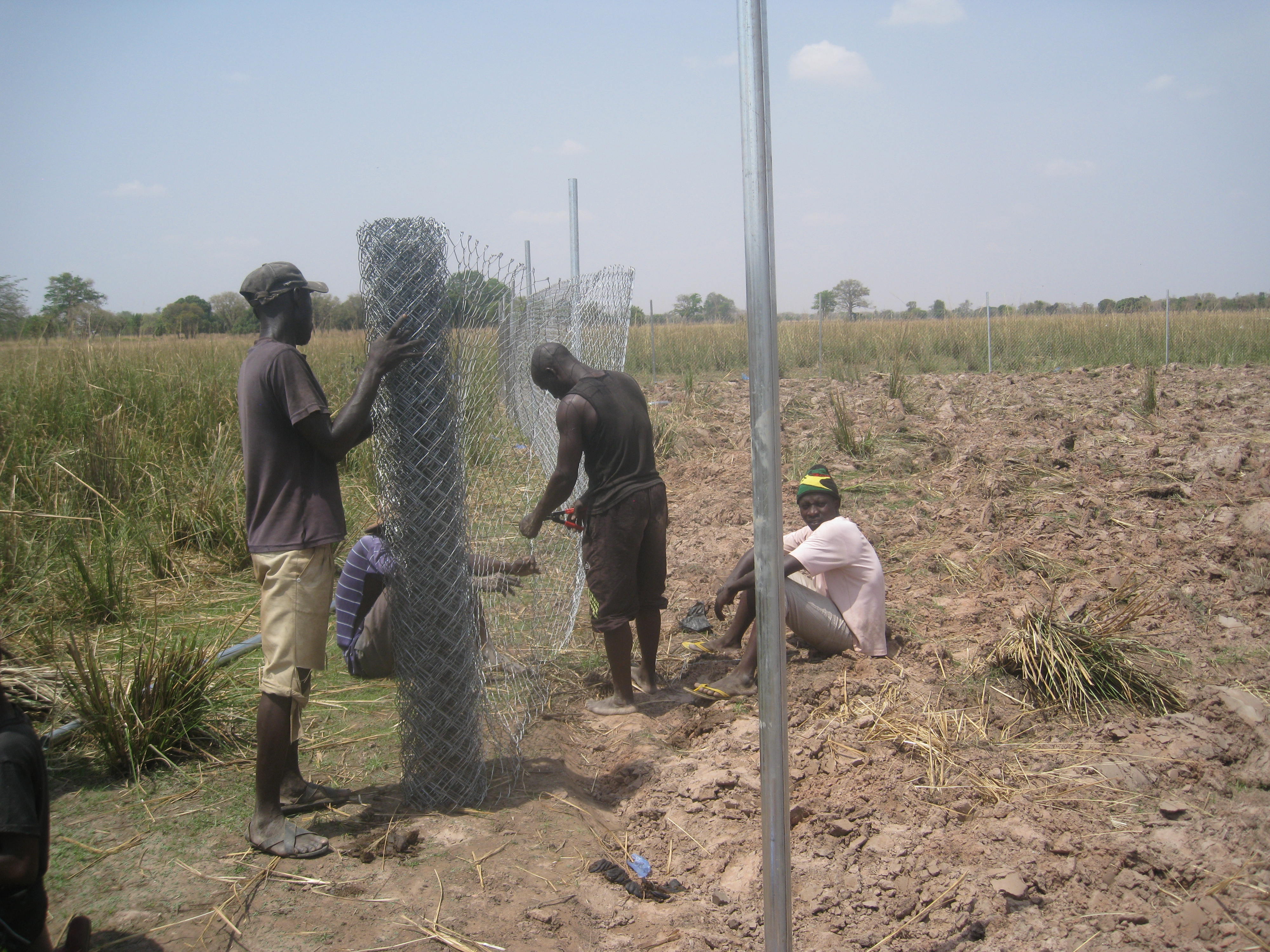
The initiative seeks to improve and secure the livelihoods of 200 people (140 of them women) with mental health conditions or epilepsy, primary caregivers, and vulnerable widows through organic vegetable farming and small ruminant rearing, using climate-smart agricultural practices.
Visit their website: https://www.linkedin.com/company/basicneeds-ghana/about/
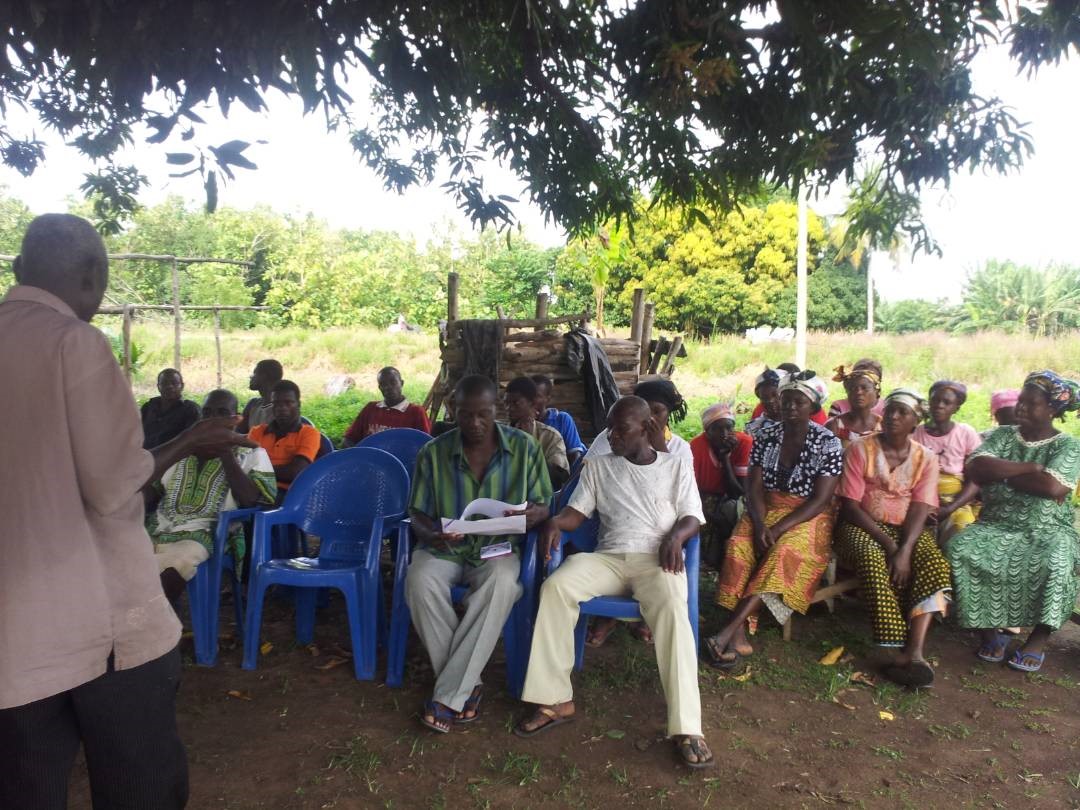
Link Ghana’s aquaponic system technology adopts a local-based innovative solution for organic vegetable production through integrated fish vegetable production and other sustainable practices, addressing climate and livelihood issues. An energy-saving fish smoking stove and organic pesticide production and utilization make the action unique.
Visit their website: https://linkghanaonline.org/
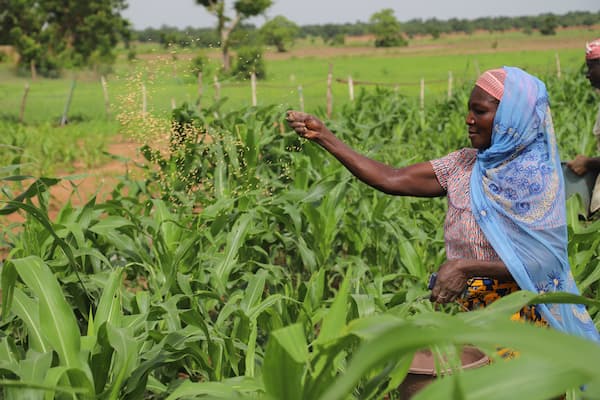
Open Ghana is scaling-up dry season gardening activities for sustainable livelihoods and diversification of income in households of five northern regions of Ghana. The focus is on directly empowering 300 people, mostly women, youth, and persons with disabilities, through increased income levels, improved sustainable vegetable crop production, enhanced community nutrition, and knowledge on proper use of agro-inputs.
Visit their website: https://www.youtube.com/@OpenGhana-oq3uc
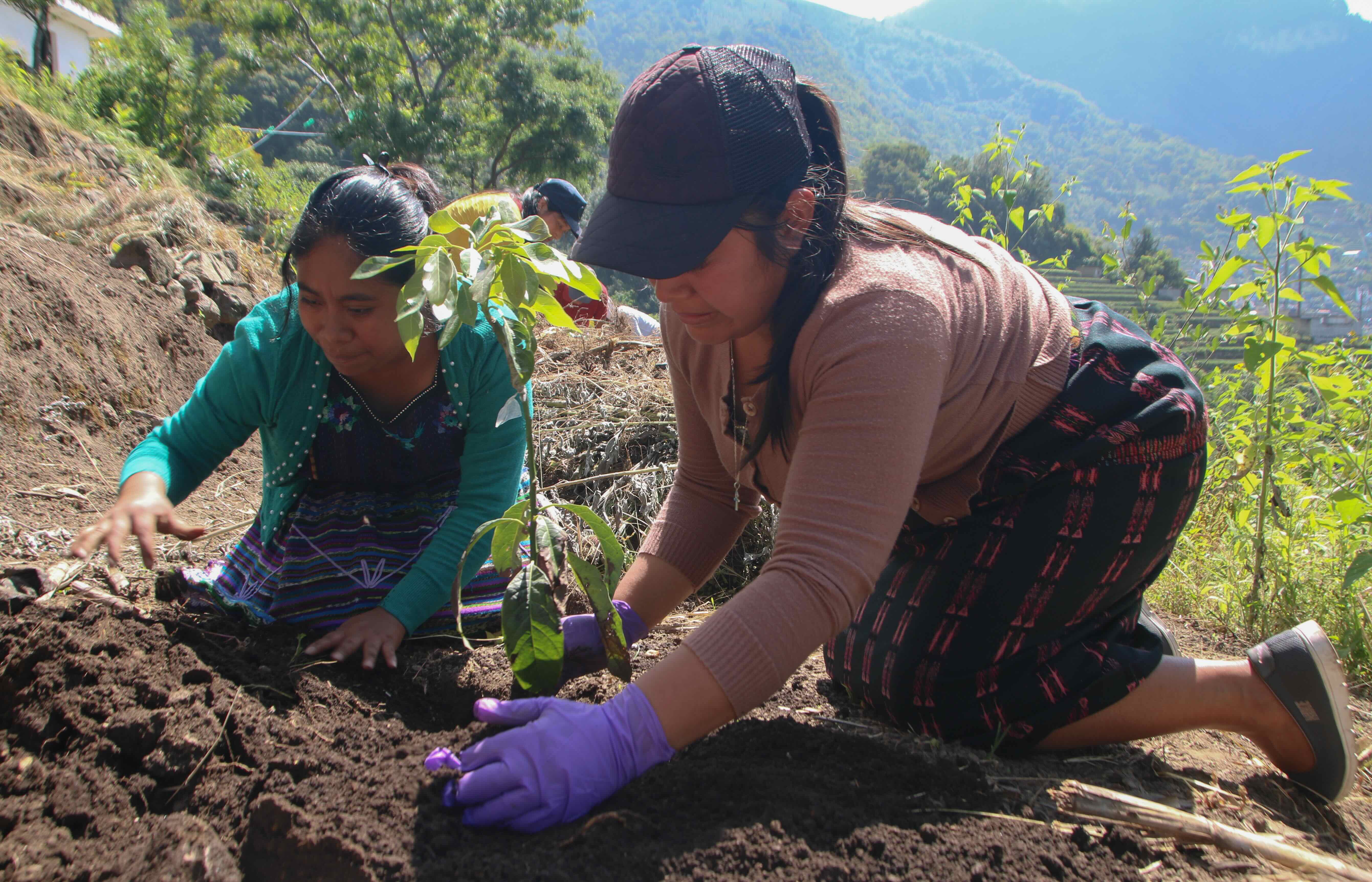
This solution aims to implement a sustainable farming model that revives traditional Maya agroecological farming practices and achieves increased resilience and yields, including through the launch of seed banks and a cooperative-style community. The training is 100 percent delivered by women within the communities.
Visit their website: https://natunguatemala.org/

The Mesoamerican Reef Insurance solution focuses on coastal protection strategies aimed at mitigating hurricane damage and risk. It involves funding post-disaster activities through an innovative insurance product, pre-positioning risk financing, and establishing formalized response plans for immediate post-storm response such as debris removal and coral re-planting.
Visit their website: https://marfund.org/en
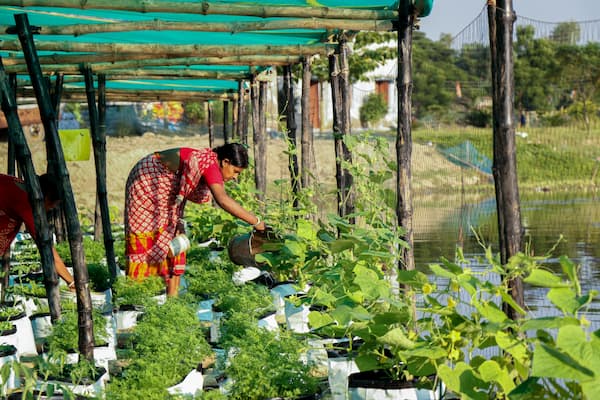
The South Asian Forum for Environment's solution promotes regenerative agriculture on floating rafts built locally, integrating farmers and fishers into offtake agreements to sell their produce. The initiative introduces and scales hydroponic float-farming and aquaculture, providing a climate-resilient agricultural solution for vulnerable coastal communities in eastern India, aimed at fostering sustainable livelihoods and inclusive growth.
Visit their website: https://www.safeinch.org
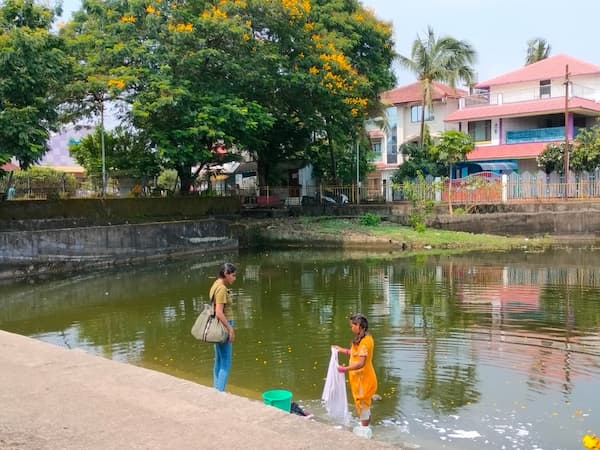
SPARC's solution promotes decentralized, nature-based waste treatment for vulnerable communities in Mumbai, aiming to reduce pollution, enhance groundwater quality, protect biodiversity, and mitigate climate impacts. The solution uses open-source software to enable any community-based organization worldwide to replicate the process. This approach supports residents in planning and securing funding for sustainable projects, fostering environmental health and livelihood improvements.
Visit their website: https://www.sparcindia.org/
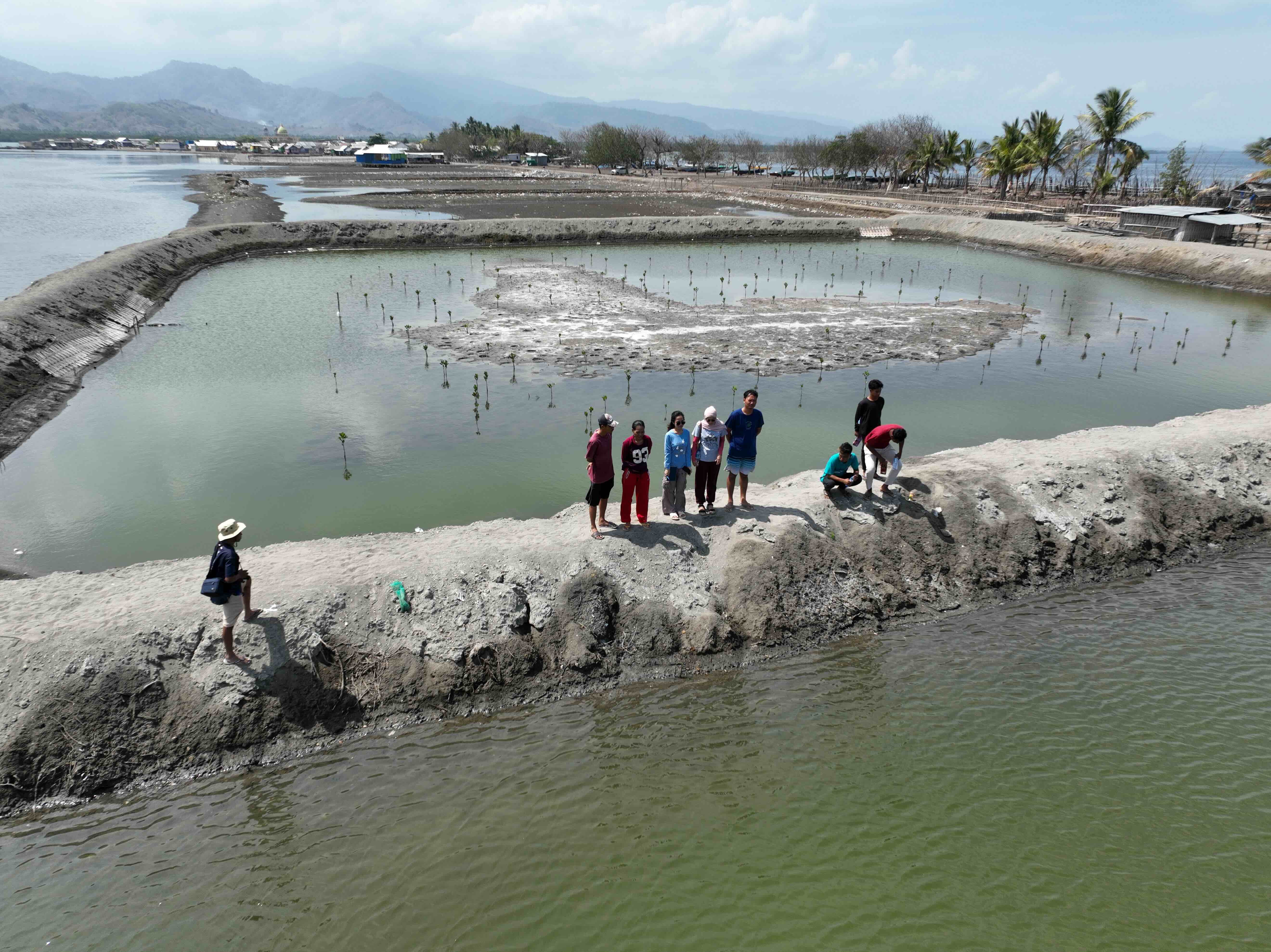
This initiative aims to enhance the resilience of coastal communities by raising awareness about erosion through spatial planning, optimizing silvofishery to protect coastlines and provide economic benefits, and establishing a community-led monitoring and early warning system for sustainable coastal management.
Visit their website: https://penjagapulau.org
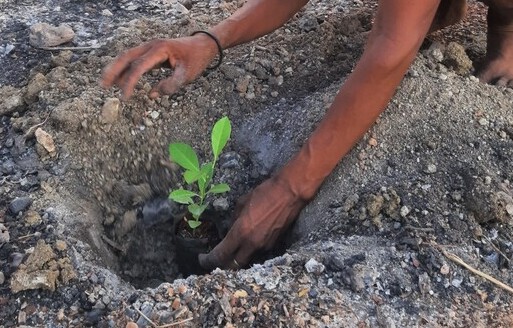
Yaysan Besi Pae's solution focuses on restoring the degraded environment in West Timor to adapt to climate change. The solution uses climate-smart agriculture and forest landscape restoration to improve and stabilize livelihoods for climate-vulnerable communities. The solution introduces simple and cost-effective gravity-based drip irrigation for high-value vegetable seed production during the dry season and aims to use the carbon market for long-term funding through a partnership with CO2 Operate.
Visit their website: https://www.besipae.org/
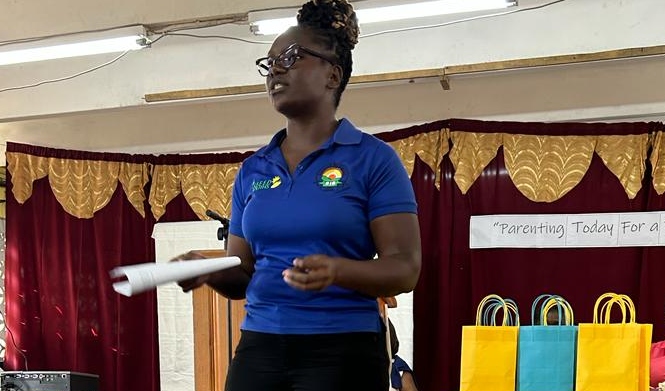
This initiative introduces solar-powered greenhouses to empower young people and women affected by gender-based violence, helping those community members escape the gender-based violence cycle. Key outcomes include capacity building to help participants start their production, with proceeds supporting community development, sustainable land management, and raising awareness of best practices.
Visit their website: https://www.instagram.com/iseeedyouthsltd/
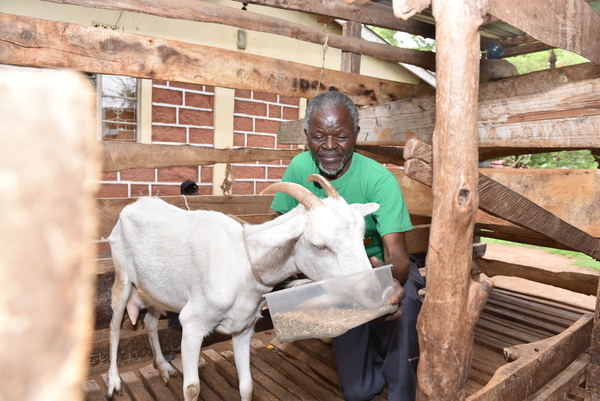
The World Neighbors solution focuses on building community resilience to climate change through the use of locally formulated dairy goat meal in Kisumu County, Kenya. This is achieved by increasing dairy-goat keeping and producing meal sustainably, which helps households adapt to climate change and improve their food security. By increasing the milk productivity of better nourished goats, women entrepreneurs are increasing their income by selling dairy products.
Visit their website: https://prolinnova.net/category/country-platforms/kenya/
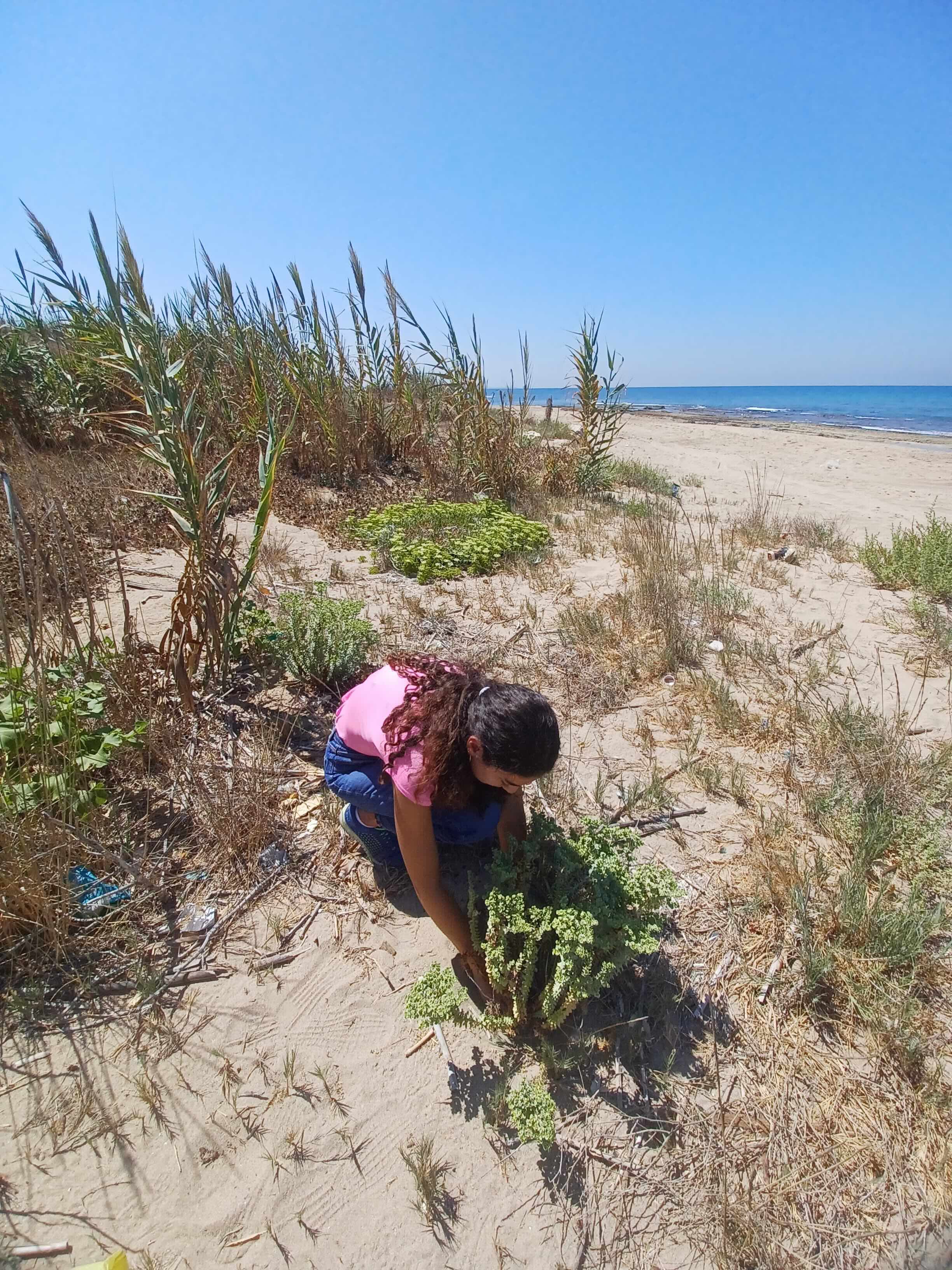
Diaries of the Ocean is dedicated to restoring sand dunes by building protective wooden fences near the beach. This initiative benefits the local agriculture industry by shielding agricultural plains from sea hazards, maintaining clean beaches, and supporting ecotourism activities.
Visit their website: https://www.facebook.com/diariesoftheocean/
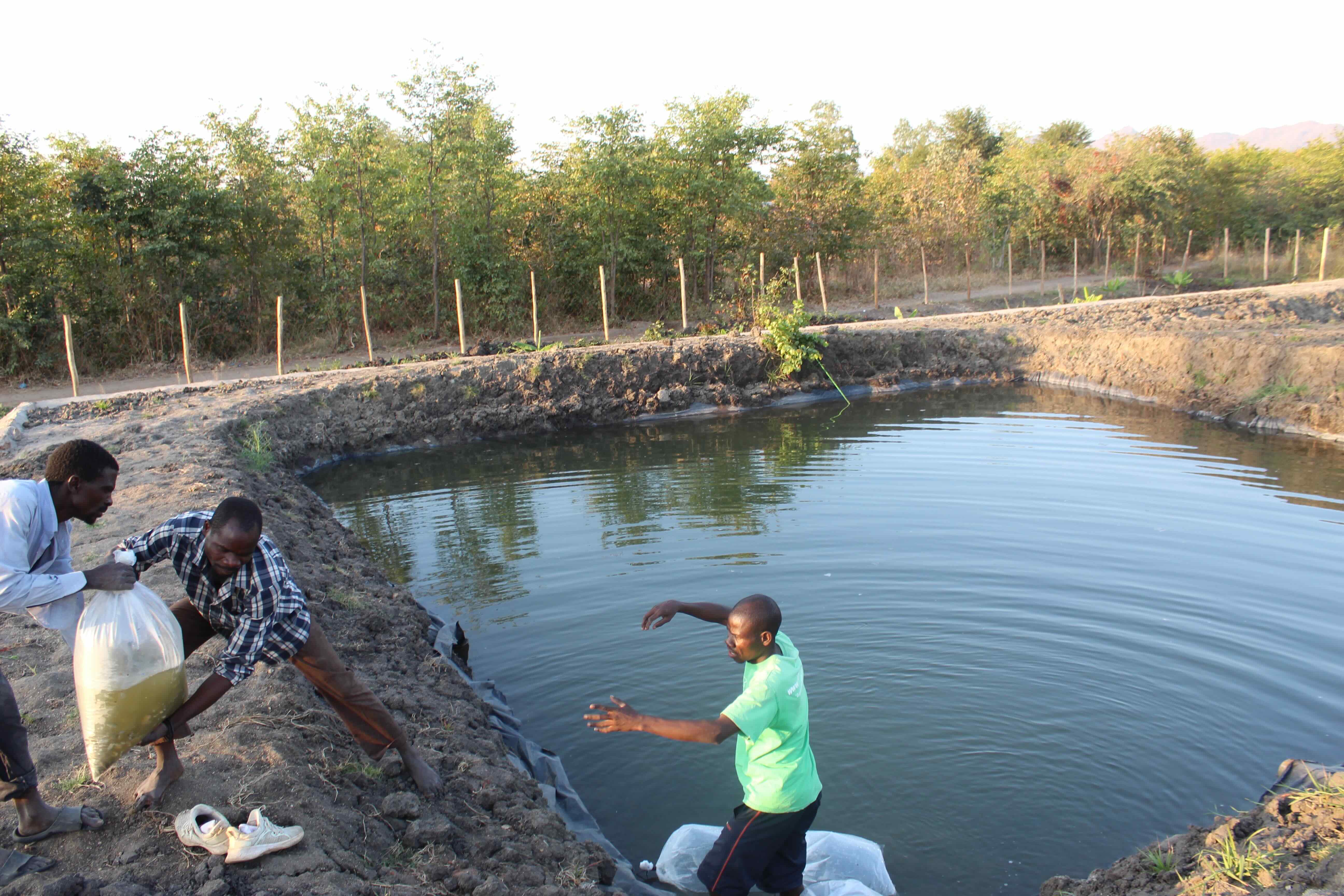
Action for Environmental Sustainability is dedicated to empowering smallholder farmers through a school farm project. This initiative offers capacity building in sustainable livestock management and climate-smart agriculture. The school farm is equipped with livestock housing, a fishpond, and two greenhouses for crop seedlings.
Visit their website: https://afesmw.org/
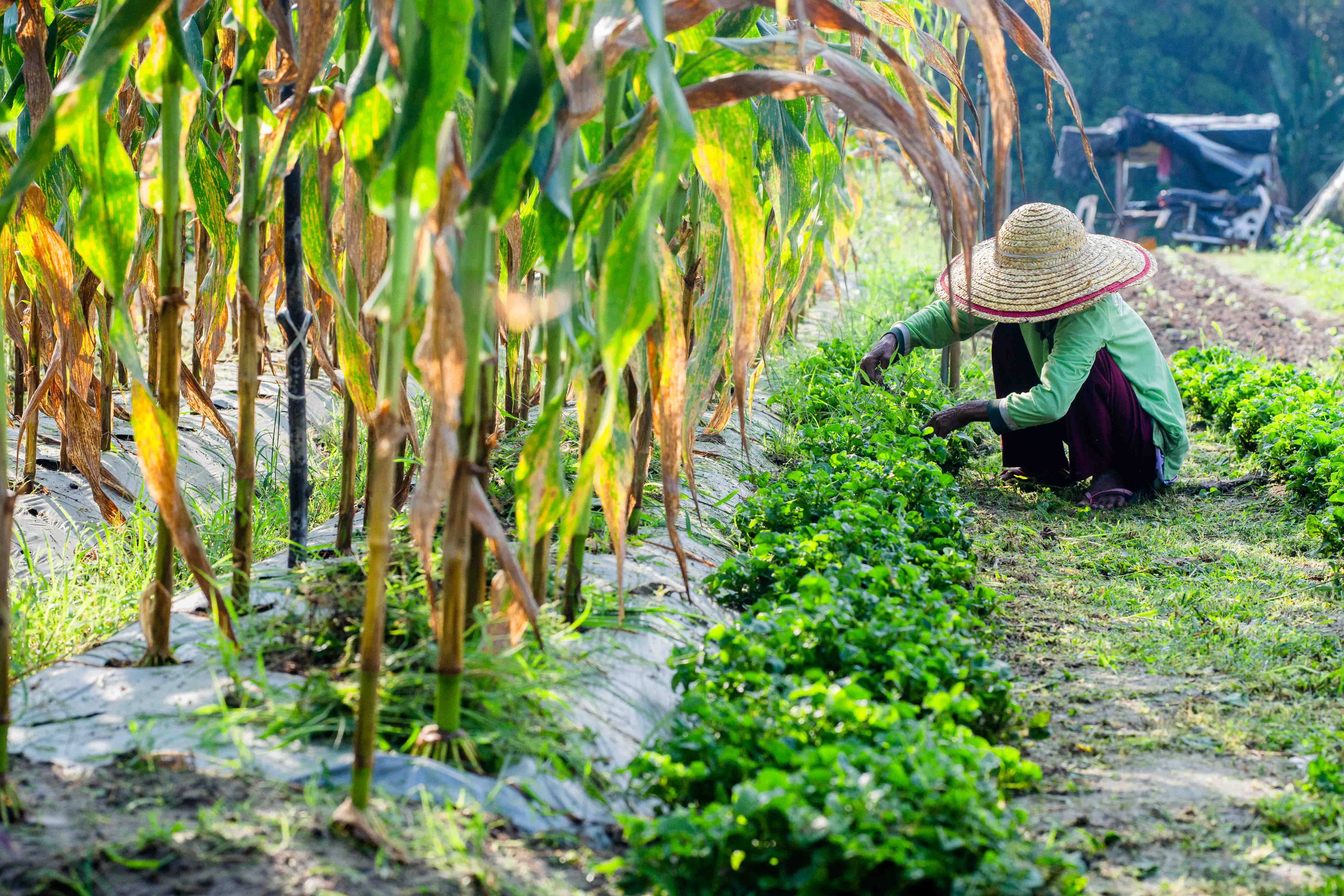
This solution advances a green economy model in local Indigenous communities by establishing a community led-agroforestry and organic agriculture enterprise. It provides diverse livelihood options, elevating living standards, and enhances the entire value chain with technical expertise and strategic partnerships, promising significant positive impact and sustainable development.
Visit their website: https://ykpm.org.my/
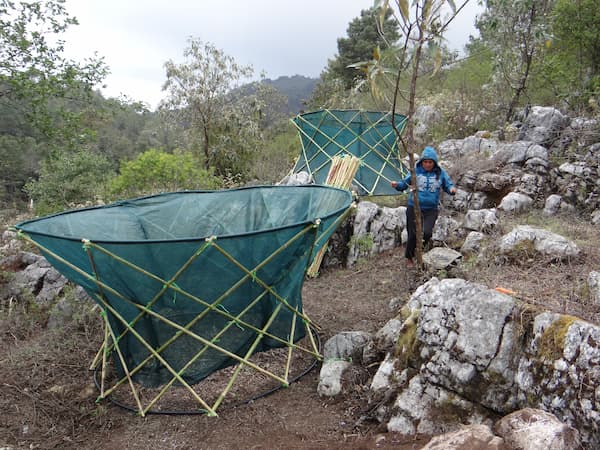
Espacio de Encuentro de las Culturas Originarias de Mexico (EECO), combines traditional Indigenous knowledge and innovative water management techniques to reduce the vulnerability of crops and wildlife to extreme climatic events. The solution uses a technological package that involves the installation of fog-catchers, water channels and live barriers to increase the resistance of crops to frost and droughts, improving the quality of life, the income level and health of Indigenous Peoples in Oaxaca.
Visit their website: https://eeco.org.mx/
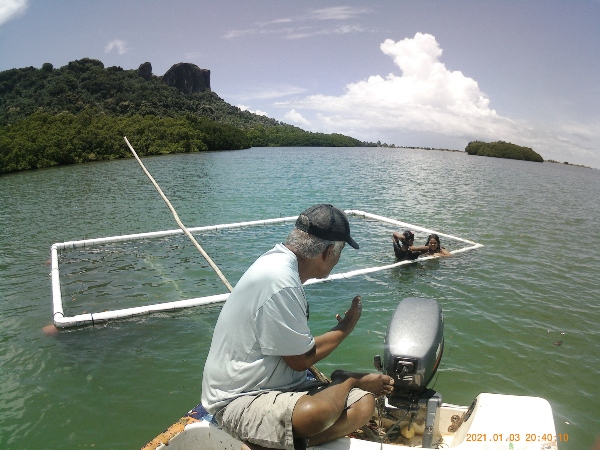
The Sokehs Menin Ketengensed solution focuses on scaling up the monitoring of Marine Protected Areas (MPA) in Pohnpei region for climate change impacts, including a sustainable aquaculture component (seaweed harvesting) to fund a revolving fund for community conservation officers to enforce conservation and monitor MPA changes due to climate change.
Visit their page: https://www.pohnpei-adventure.com/mpa
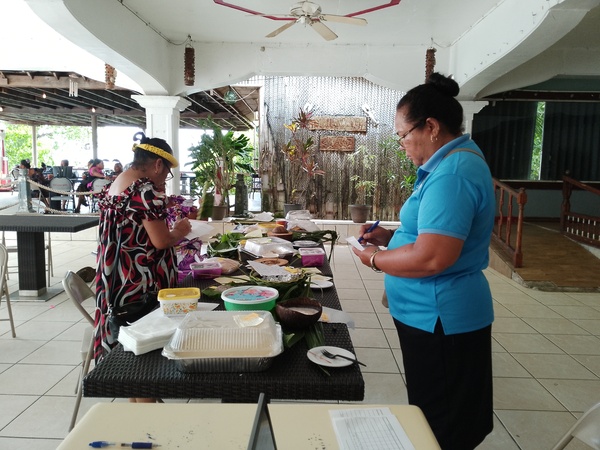
The Island Food Community of Pohnpei solution aims to increase food security and promote economic opportunities for women in Pohnpei. The solution introduces locally appropriate food and food processing techniques, such as flour production and sun-drying, to add durability to locally produced food. This helps address the climate risks to traditional crops from changing seasonal regimes and reduces reliance on imported food, thereby promoting local sustainable food production.
Visit their website: http://www.islandfood.org
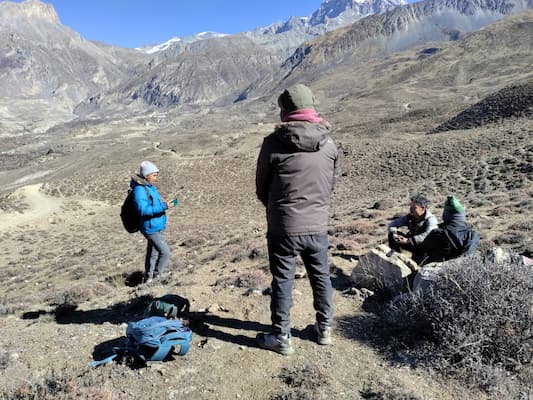
Rural Development Initiative employs locally led adaptation principles to establish a community-based approach for addressing chronic rangeland issues and to sustainably manage the landscape. This initiative focuses on co-creating, with communities, innovative structures that enhance fodder availability for goats, break destructive resource cycles, improve water absorption capacity of the land, and reduce economic and social vulnerability among marginalized herders.
Visit their website: https://www.facebook.com/RDINepal/
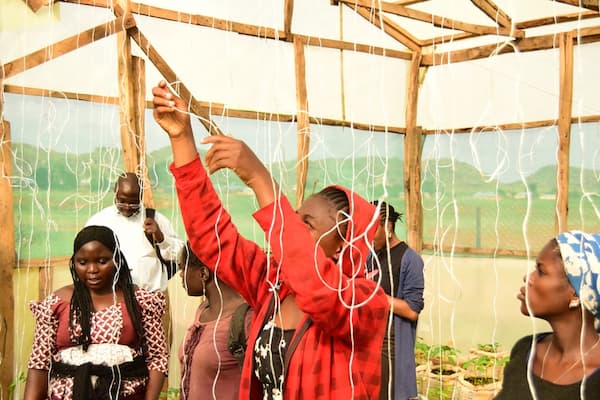
SEFFA's solution focuses on building resilience to climate change by training farmers and fishers in climate-smart agriculture, greenhouse technology and circular economy practices. The initiative places a strong emphasis on empowering women as key environmental stewards, ensuring they take on leadership roles within their cooperatives.
Visit their website: https://susteffa.org/
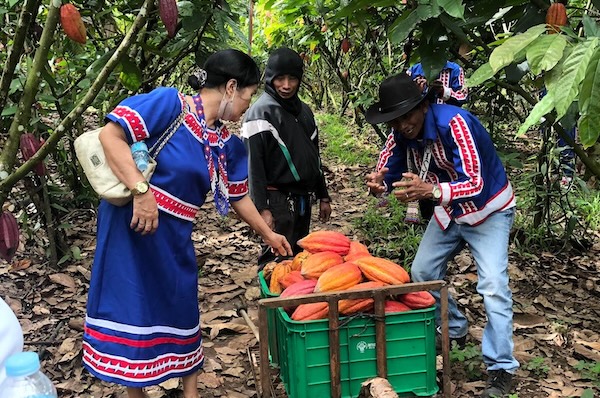
BUKDAA focuses on establishing giant bamboo plantations and promoting bamboo and cacao cultivation to combat deforestation, soil erosion, flooding and pollution. The solution provides training in cultivation, harvesting and marketing to enhance livelihoods and foster climate resilience while preserving the tribe's ancestral lands.
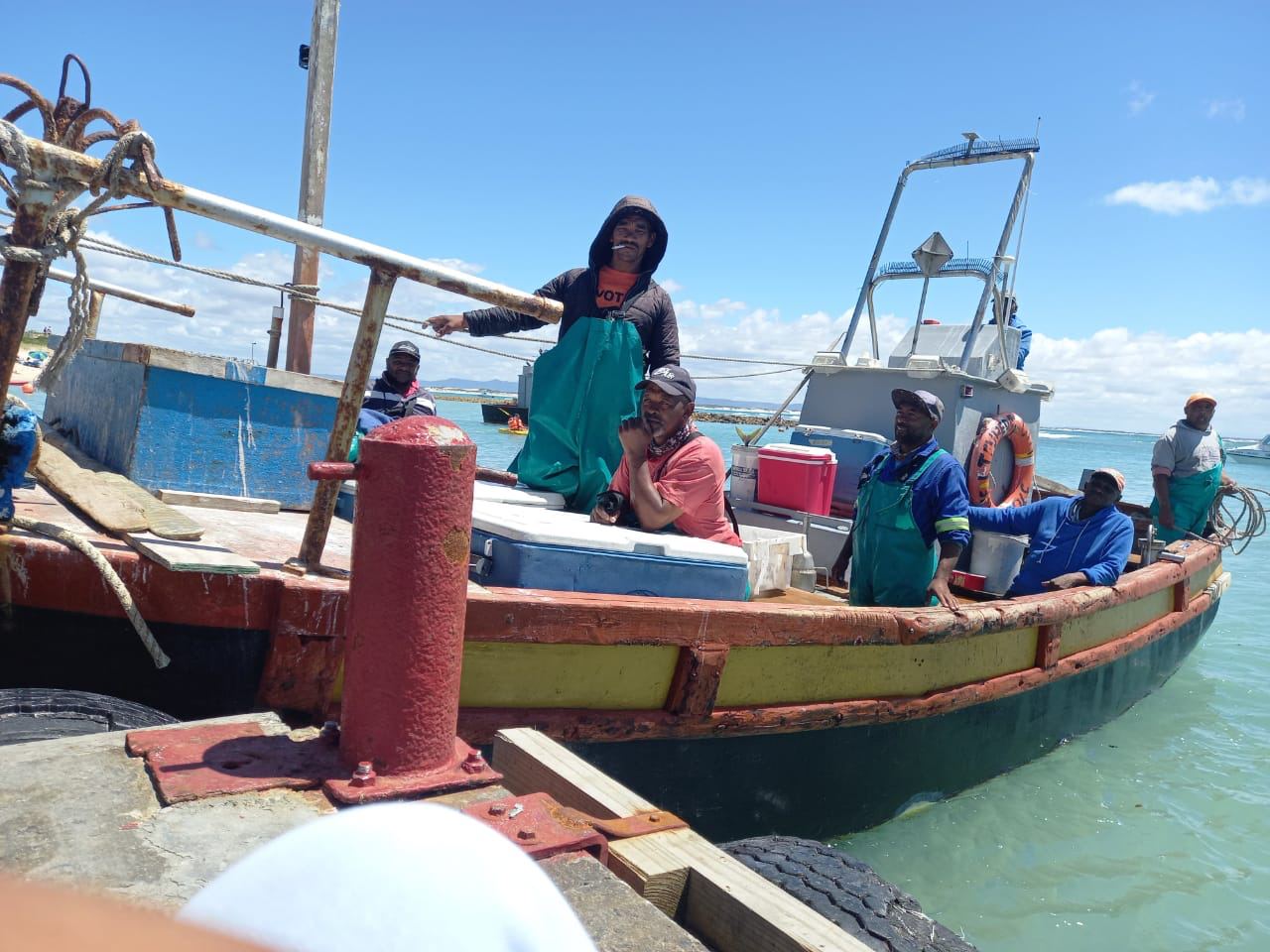
ABALOBI provides fishers with training, ICT platforms, and financial services that connect them directly with buyers and ensure significantly improved profits. As a result, participating fishers and fishing communities are far better able to deal with climate shocks and adapt to changing fishing conditions.
Visit their website: https://abalobi.org
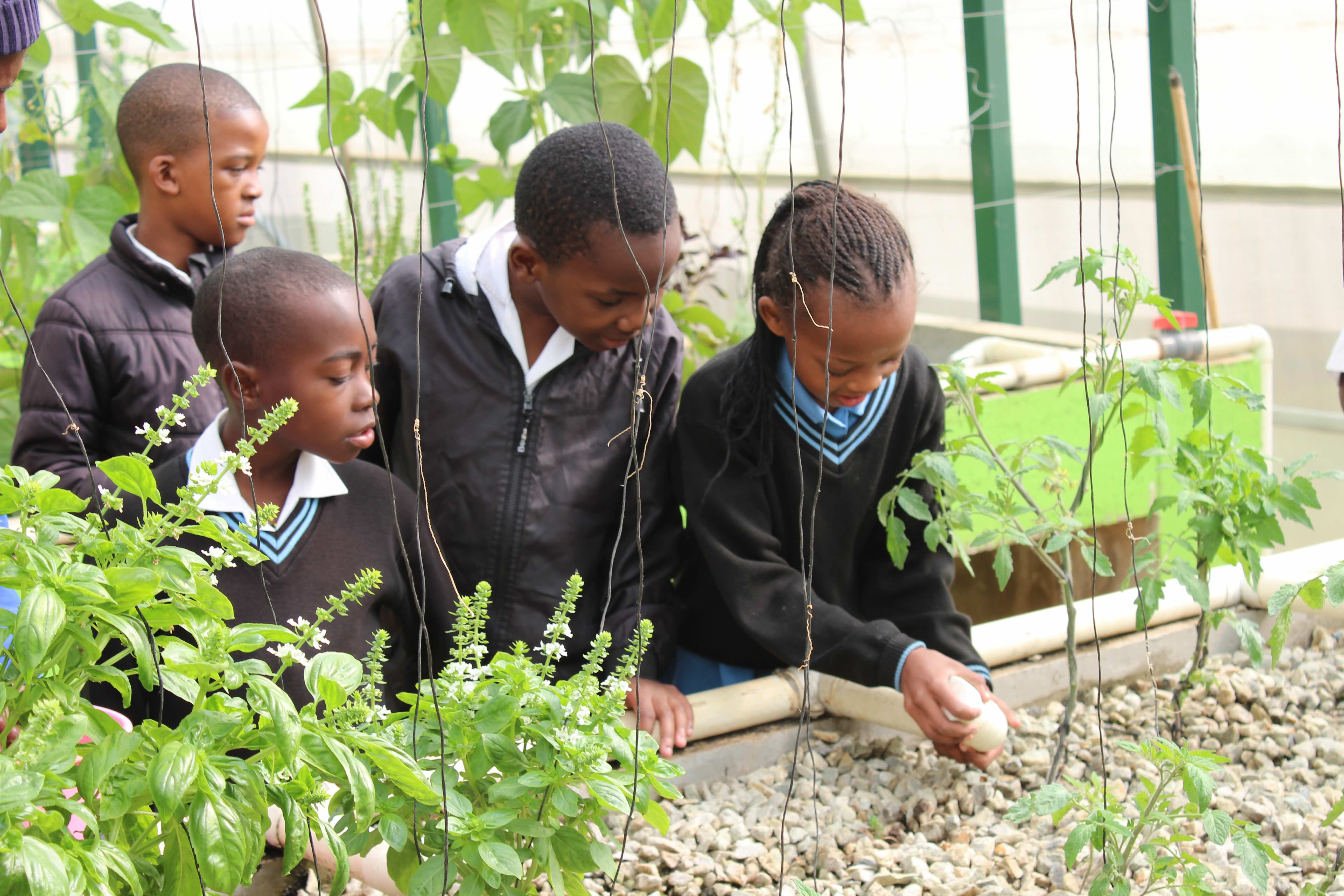
INMED's aquaponic system reduces resource dependence by combining soilless crop production and fish farming in a climate-adaptive, recirculating technology. The initiative aims to provide education initiatives in public schools promoting climate resilience. The materials utilized in production are environmentally friendly, using plastic waste collected and recycled through deep ocean cleaning.
Visit their website: https://inmed.org.za
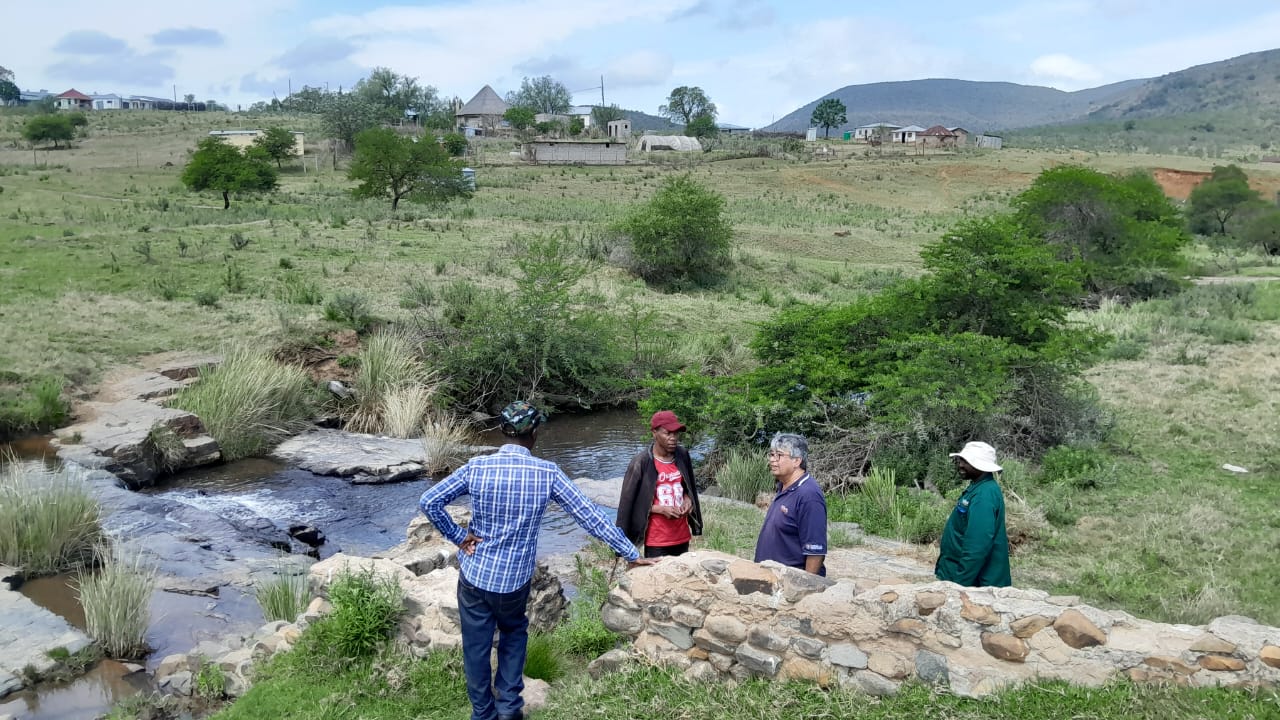
The initiative aims to support the development of food gardens in the Amatole Basin to enhance short and medium-term food security. Key elements include diversifying crop and livestock production, improving access to land and resources like water storage and quality seeds, providing comprehensive training and capacity building, and engaging the community, especially women and youth, throughout the process.
Visit their website: https://ruliv.org.za
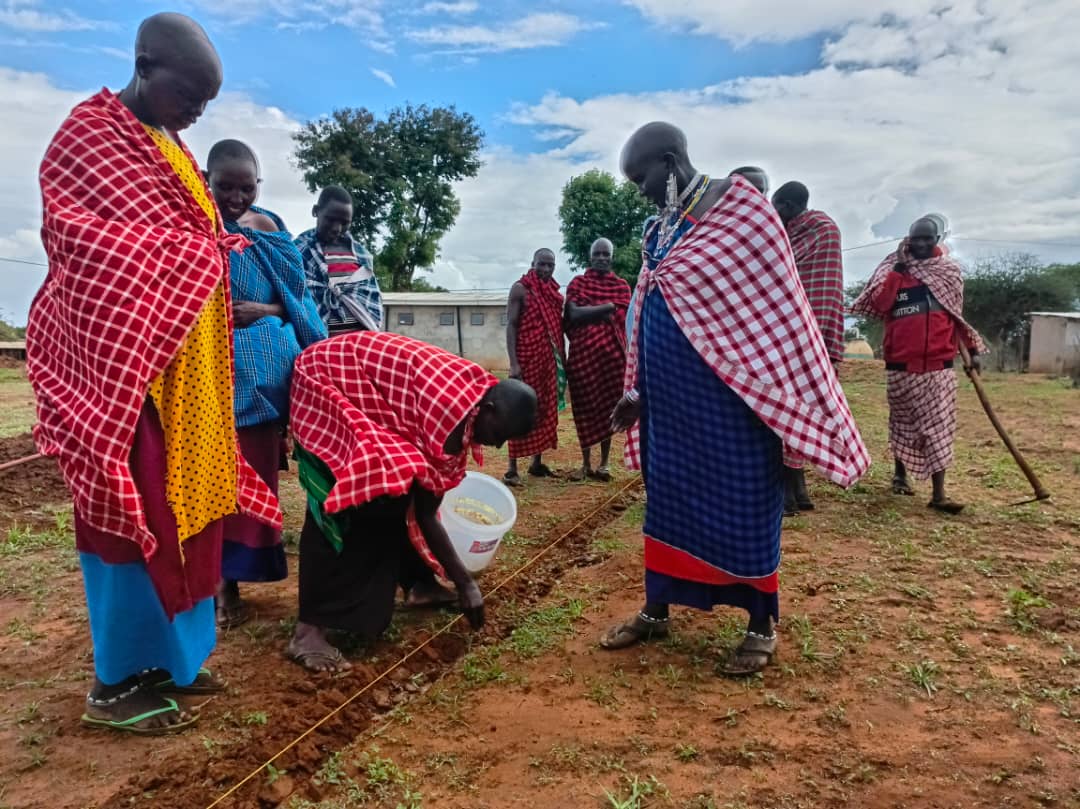
Savannas Forever Tanzania is seeking to implement a native plant initiative to accelerate the restoration of biomass and biodiversity in three areas. The organization aims to leverage past learnings and insights to deploy a native flora/plant reseeding and replanting initiative to restore biodiversity, stabilize watersheds, increase soil moisture, and combat invasive species.
Visit their website: https://sftz.org
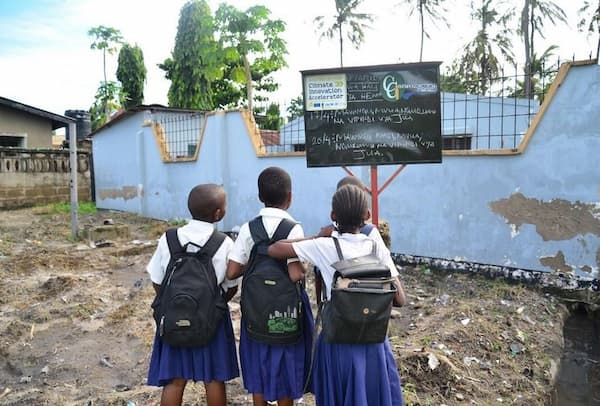
This solution used a city-wide approach to enhance vulnerable communities' climate adaptation capacity by creating information-sharing networks among communities, local actors, and weather and climate information providers. It employed a comprehensive co-production process, including co-design of content and dissemination channels and co-creation of feedback loops, involving forecasters, climate scientists, climate adaptation experts, and disaster managers.
Visit their website: https://ccitanzania.or.tz
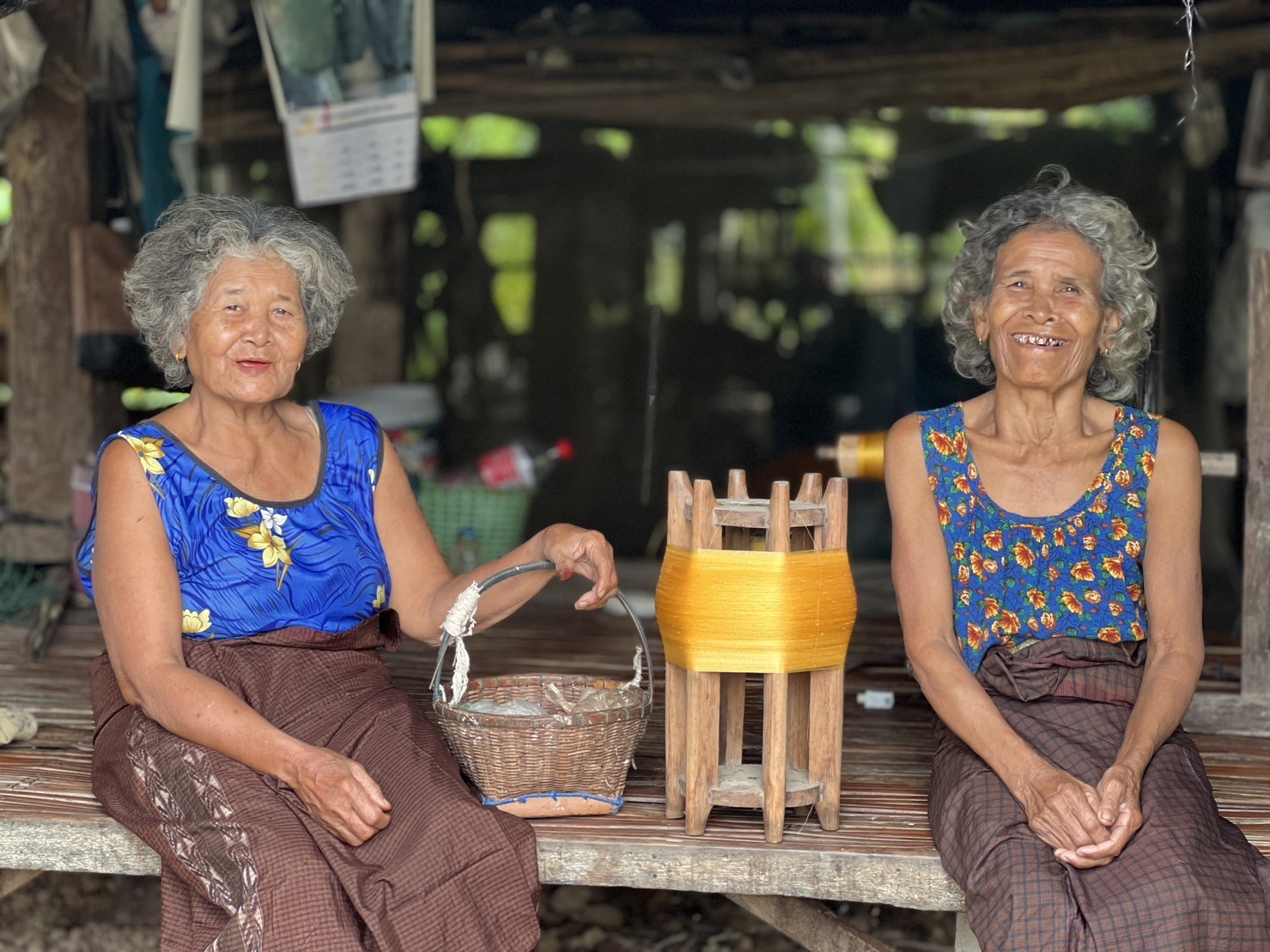
This initiative empowers a traditional mulberry silk community to become "smart farmers" by leveraging local wisdom to maintain fertilizer quality, introducing weather forecast technologies, and promoting women's roles in climate adaptation. The key outcome is to reduce income losses from natural disasters, ensuring sustainable livelihoods.
Visit their website: https://fcs-thailand.org/
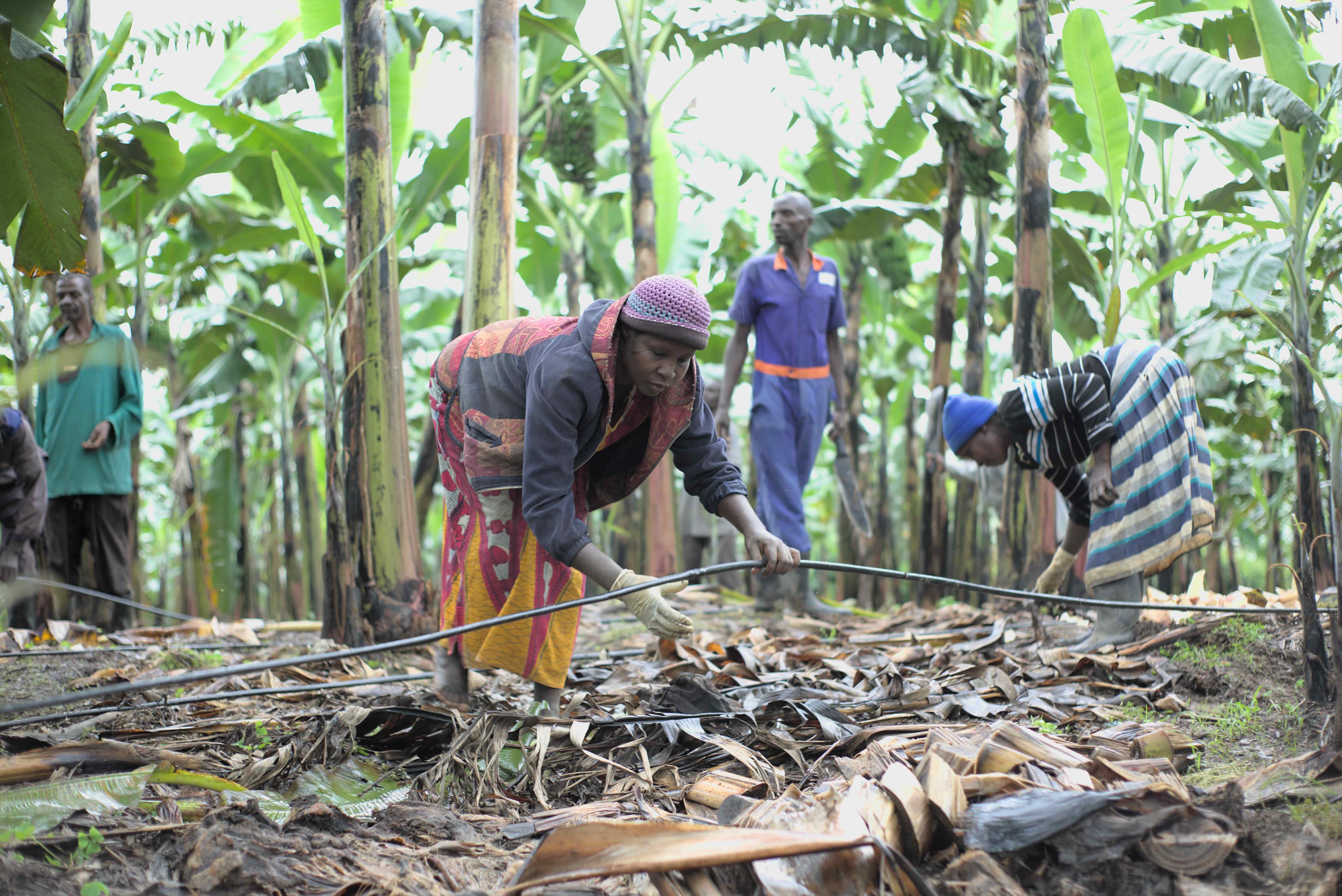
Banana Industrial Research and Development Centre (BIRDC) seeks to pilot a Picture-Based Insurance (PBI) product for the purpose of addressing climate change-related events that adversely impact banana crops across Uganda. The project provides banana farmers with access to “science-led processing” to process matooke (plantain) into a range of products for sale in local and international markets.
Visit their website: https://www.pibid.org/
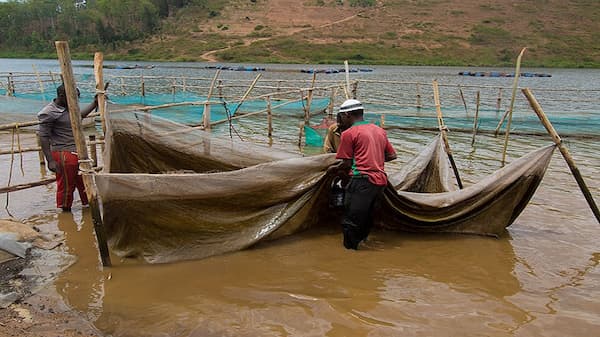
The SAMPLE Uganda Aquaculture Association's ADMIRE Enterprise solution introduces aquaponics technology through a lease-to-own model in Uganda, promoting aquaponics and horticulture-related production. The initiative aims to enhance ecosystems and community resilience to climate change impacts, including nursery propagation. The solution supports sustainable food systems and climate change adaptation.
Visit their website: https://sampleuganda.ueuo.com/
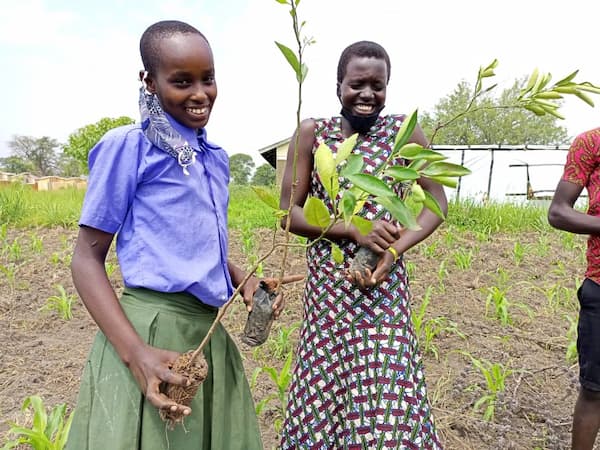
The Moyo District Farmers Association’s innovative solution focuses on an inclusive climate adaptation planning process involving host-communities and refugees. This initiative targets local farmers to strengthen their knowledge, skills, and tools to farm more sustainably and improve their income. Through participatory planning, farmers develop capacities and skills on agroforestry and climate-smart practices to restore natural resources, reduce vulnerability to food insecurity and economic shocks, and promote peaceful coexistence.
Visit their website: https://www.moyodfa.org/
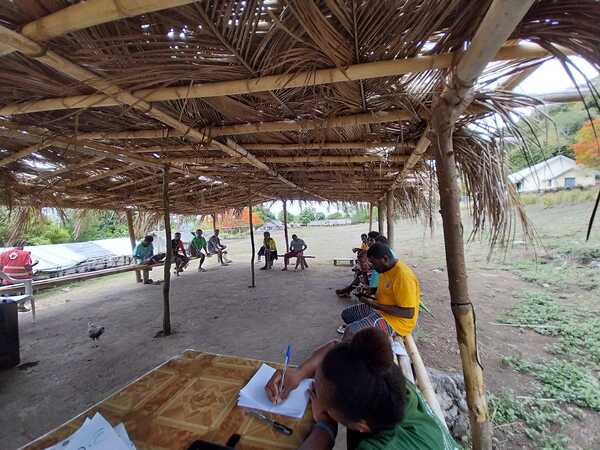
The Santo Sunset Environment Network has implemented women-led nature-based solutions in agriculture, fisheries, livestock, and forestry, using traditional adaptation actions from documented traditional knowledge. This has led to the adoption of climate resilience plans and increased grassroots capacity in understanding and mapping climate risk.
Visit their website: https://www.santosunset.org/
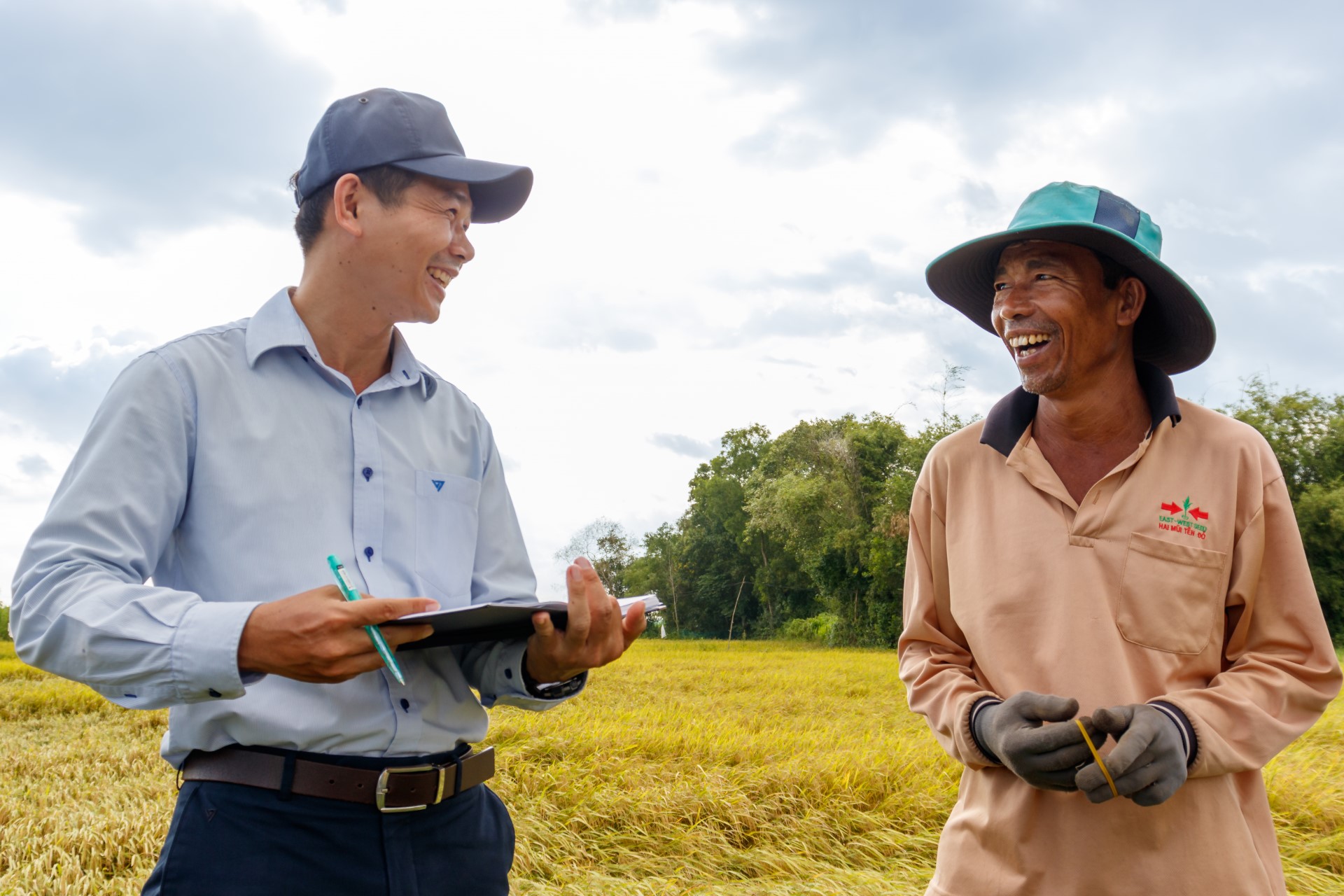
This innovative solution involves setting up new water storage systems and designing automatic irrigation systems or techniques for water crops by reusing plastic canvas and oxygen pipeline systems that are left over from shrimp farming ponds. Key outcomes include rainwater and surface water storage for use in the dry season, circular use of materials, farmer upskilling, and saving money on water usage.
Visit their website: https://www.vacc.org.vn/
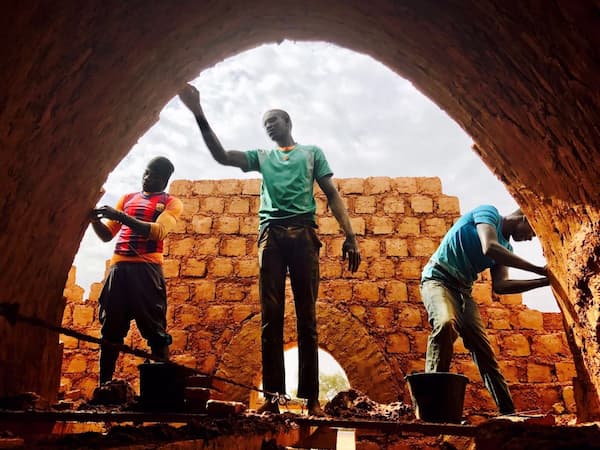
The AVN solution promotes an ancient construction technique for affordable and climate-resilient housing using local resources, such as stones, earth, and water. The project finances 15-20 percent of constructions through economic incentives for skilled labor and prefabricated materials, while homeowners cover the rest. The goal is to fund construction through carbon credits, reducing pressure on local woody resources and promoting climate adaptation. The carbon credits certification roadmap is under implementation.
Visit their website: https://www.lavoutenubienne.org/
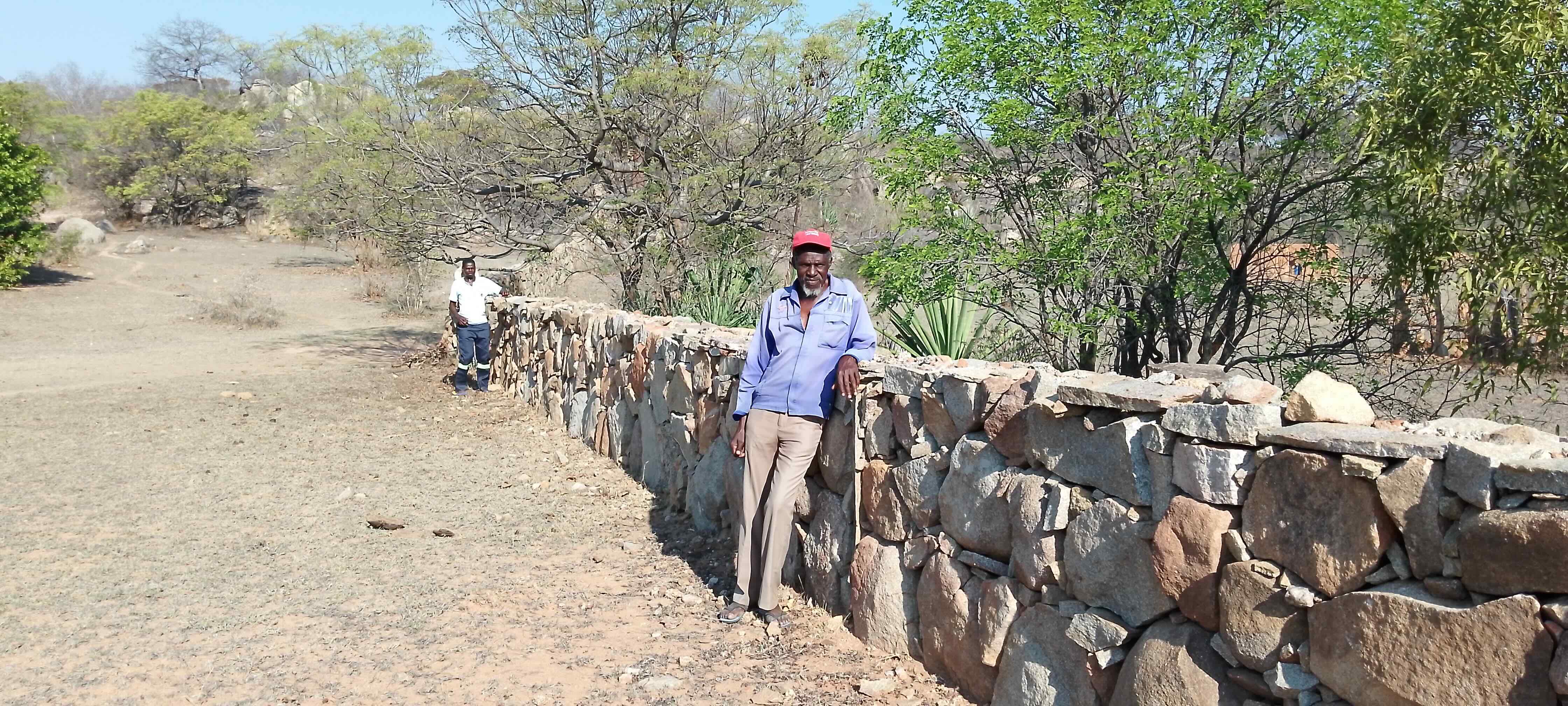
Muonde Trust seeks to implement locally developed water harvesting and agroecological innovations to address increasingly disastrous rainfall variability for the Indigenous Vangowa people in the Mazviha. Through locally-driven educational, agricultural, and community extension programs, the innovation backs Indigenous development efforts.
Visit their website: https://muonde.org/
